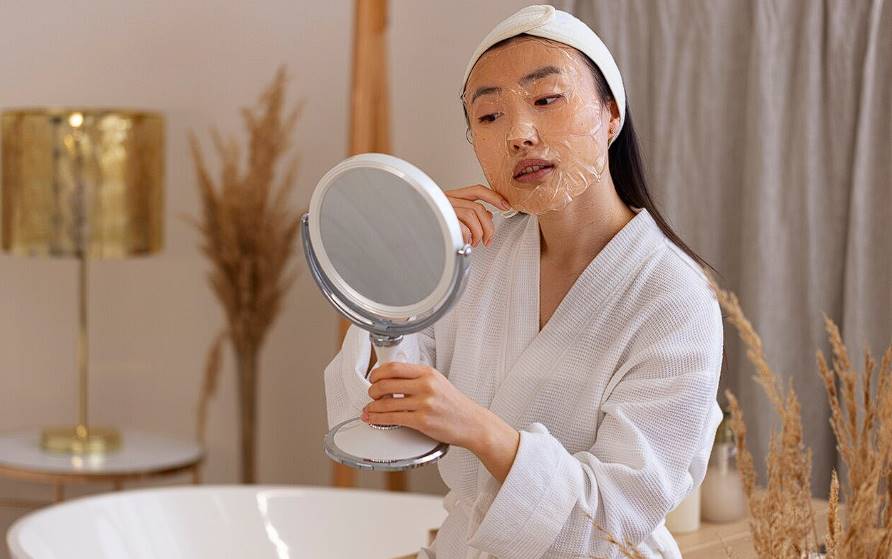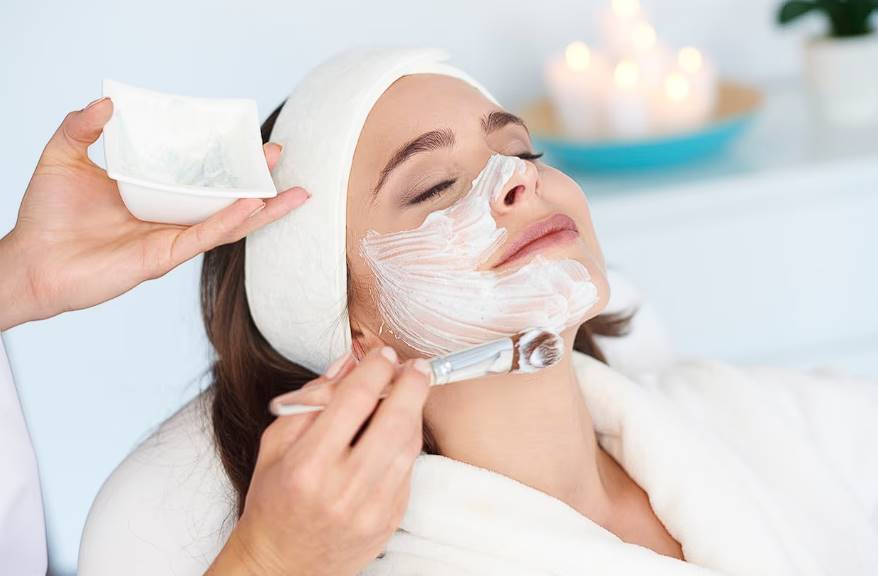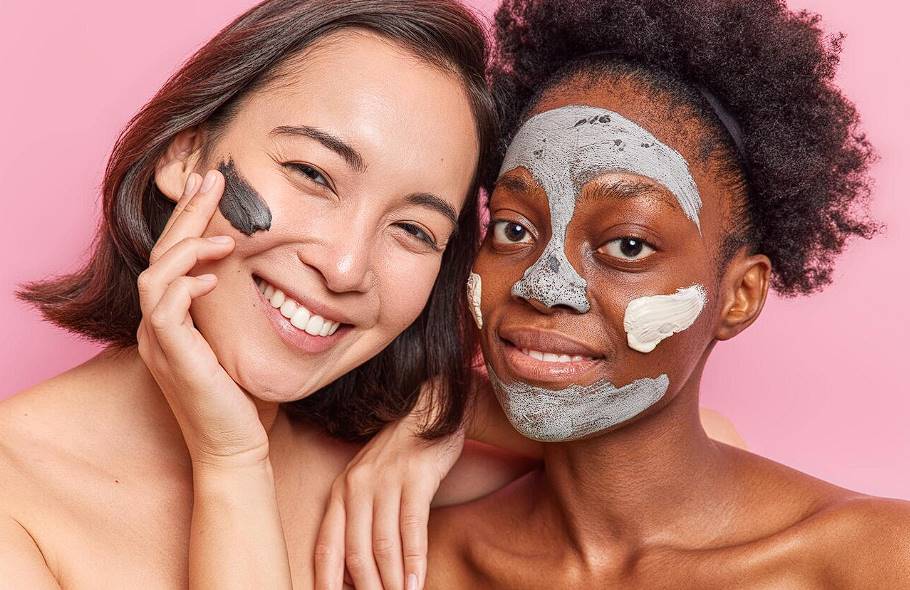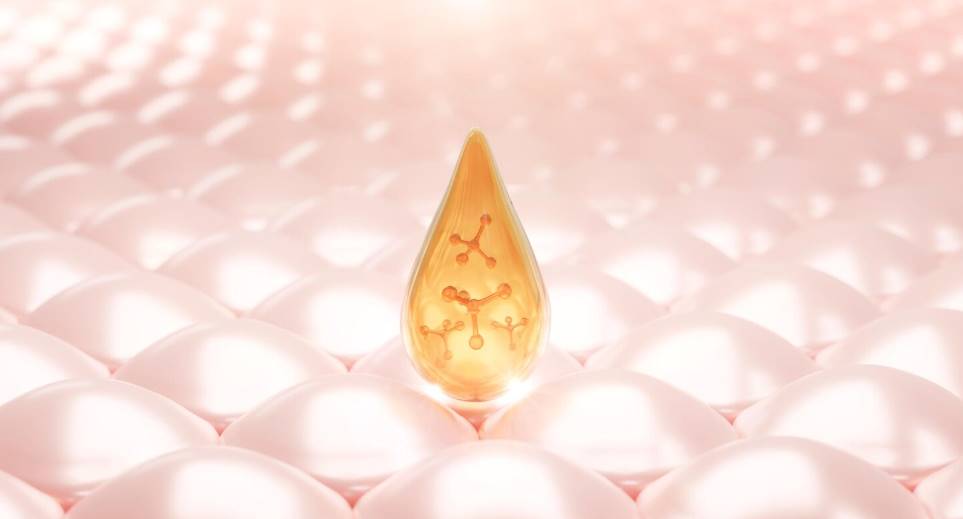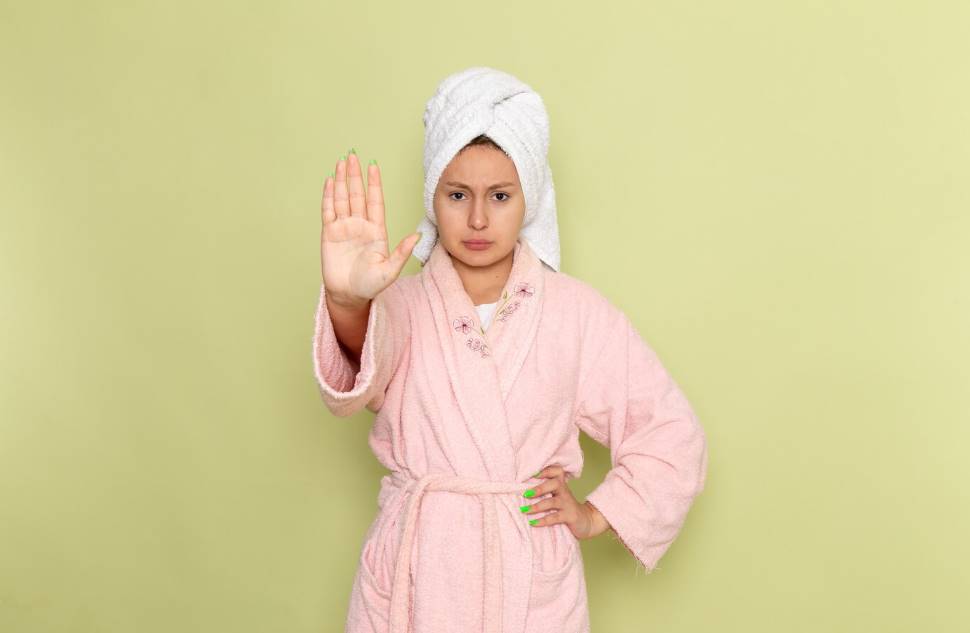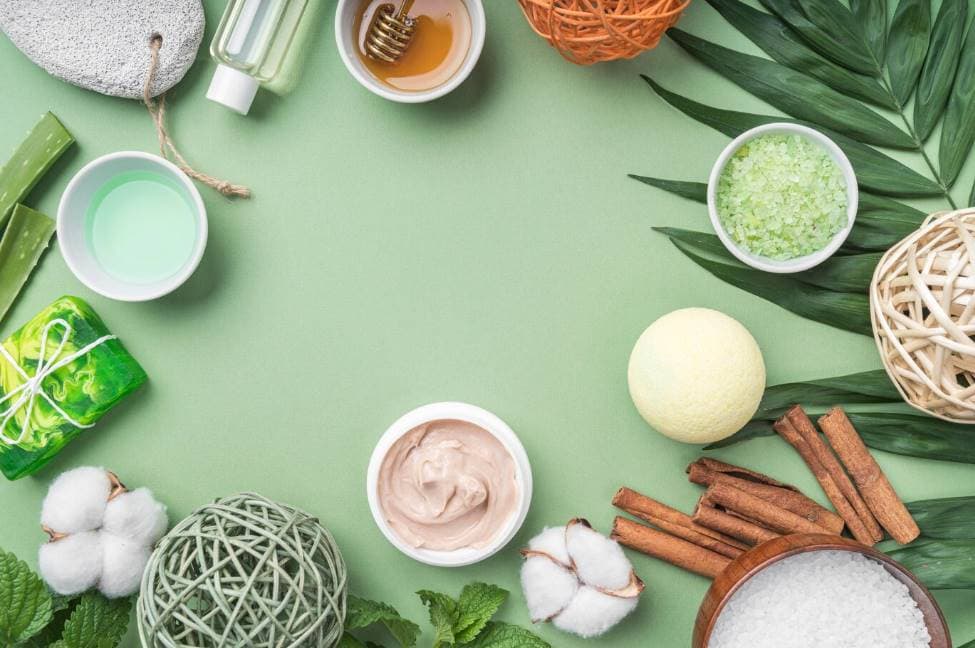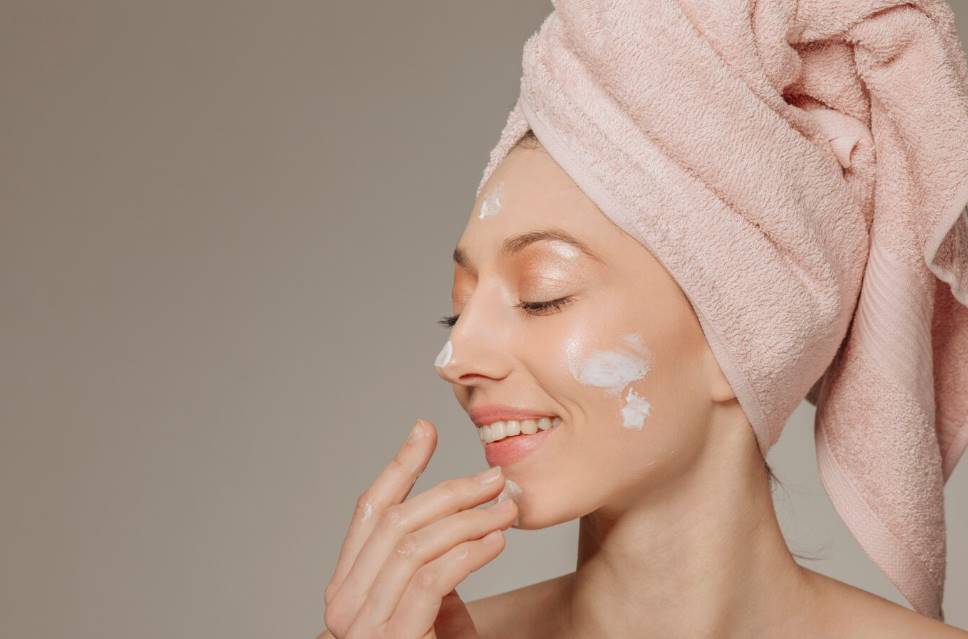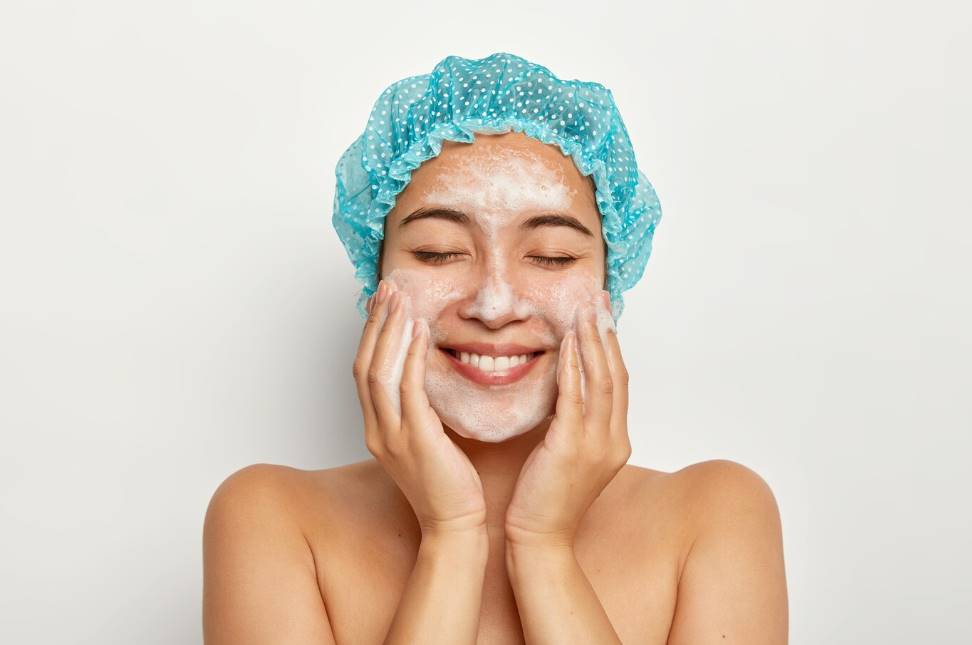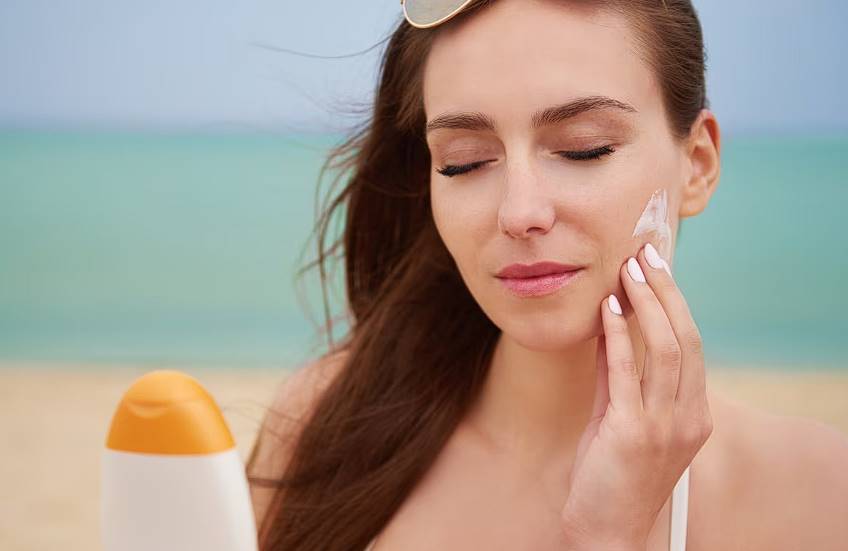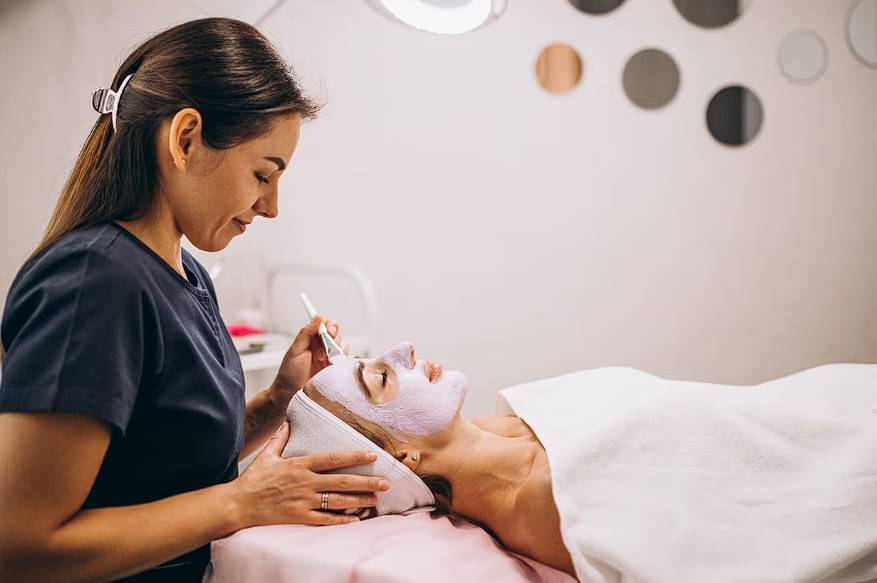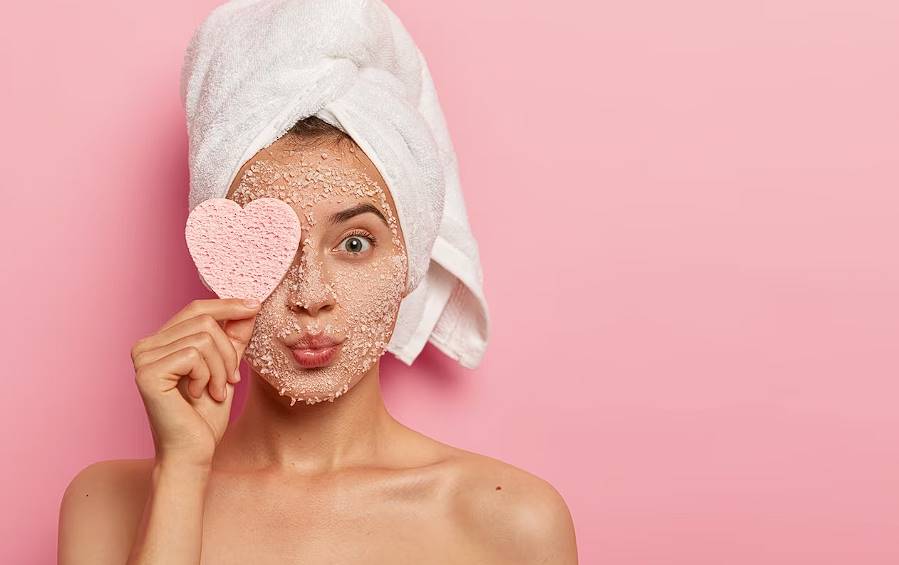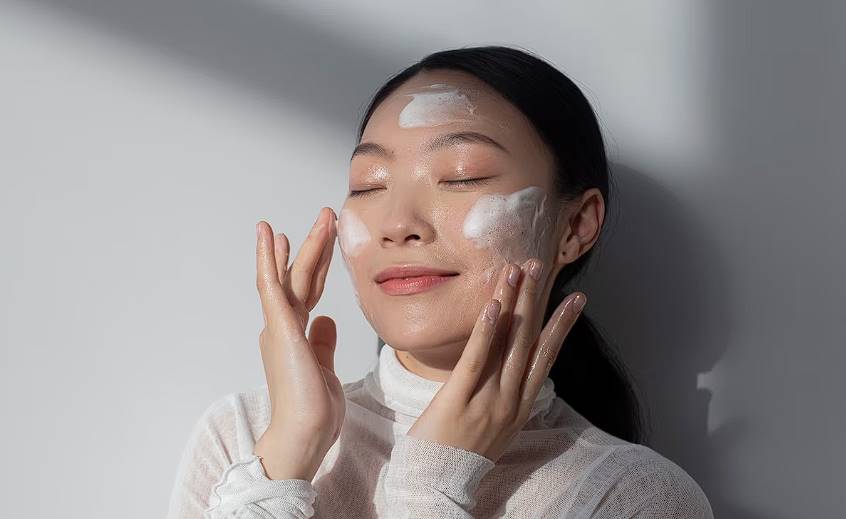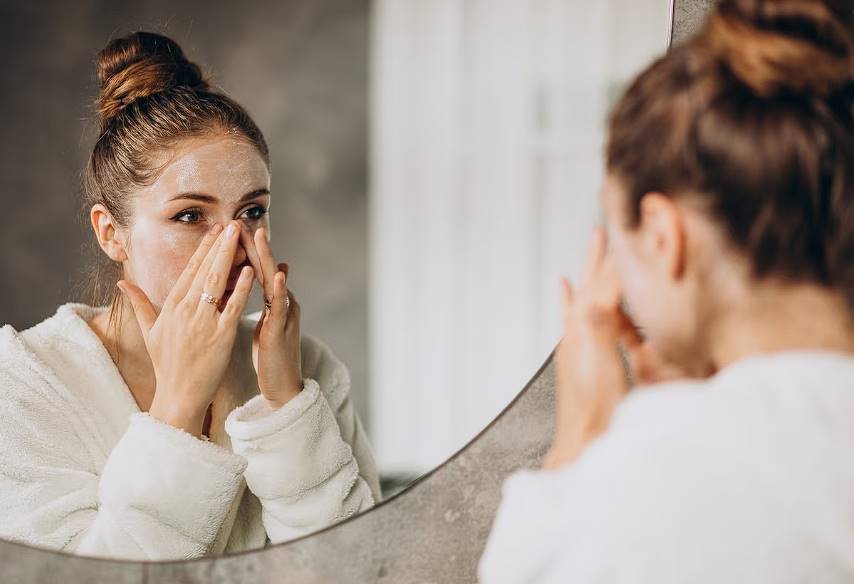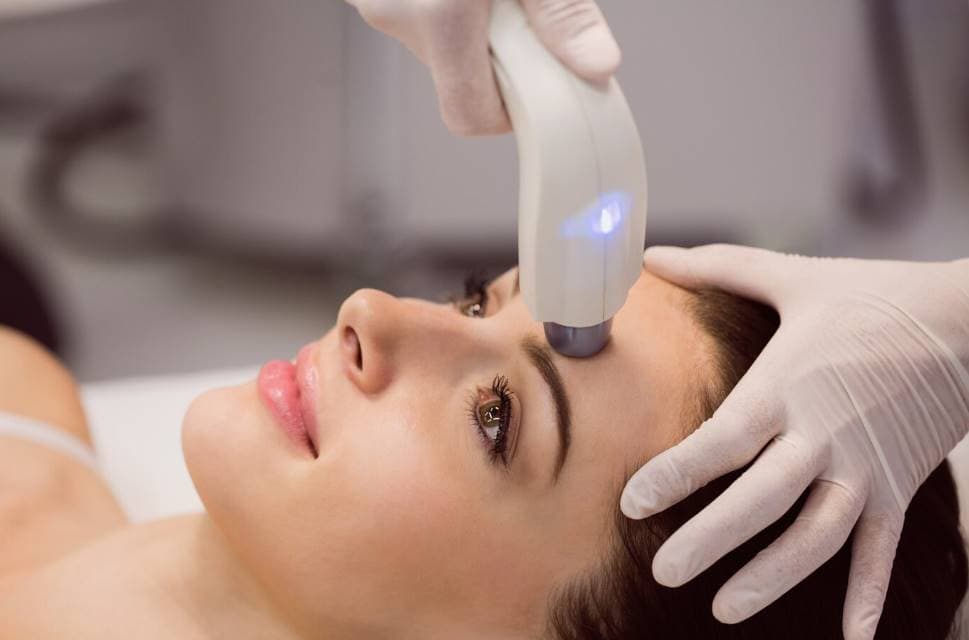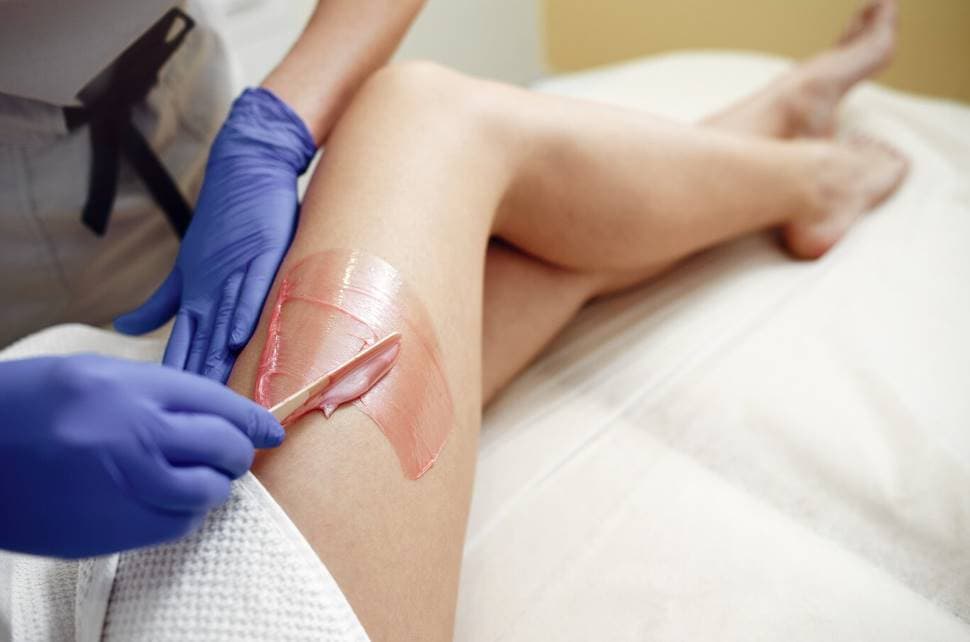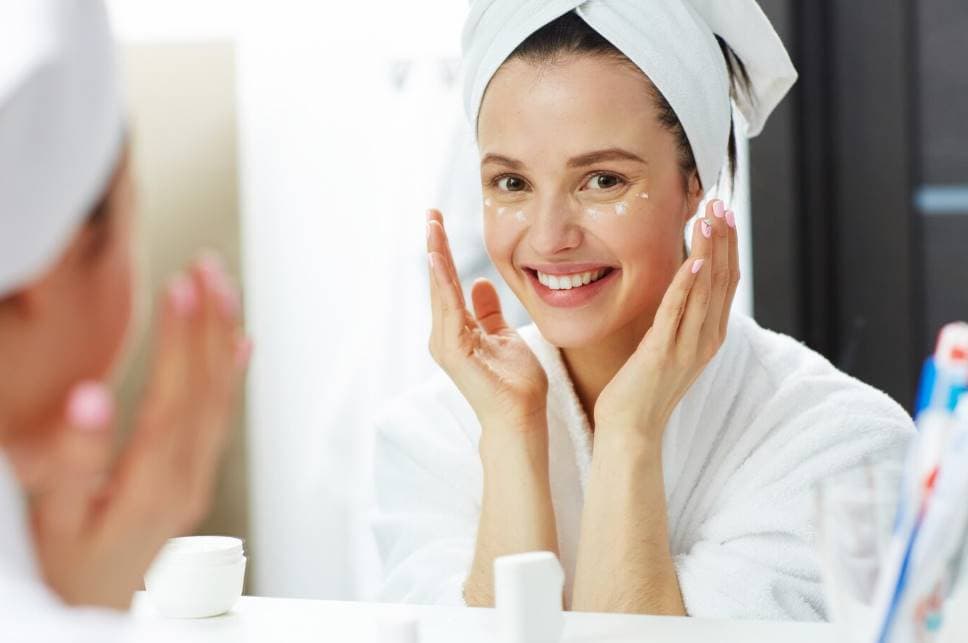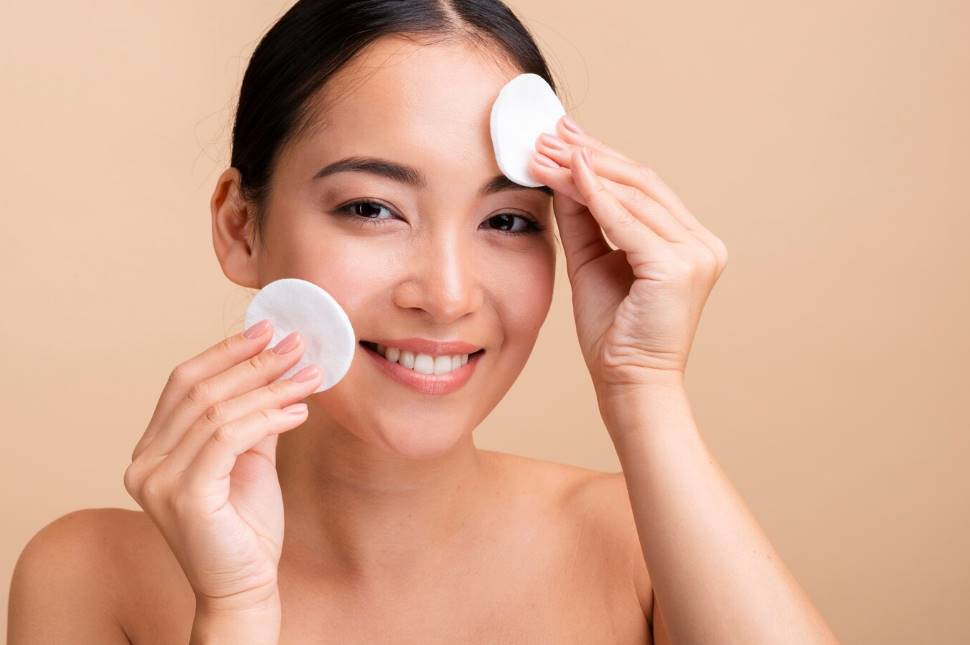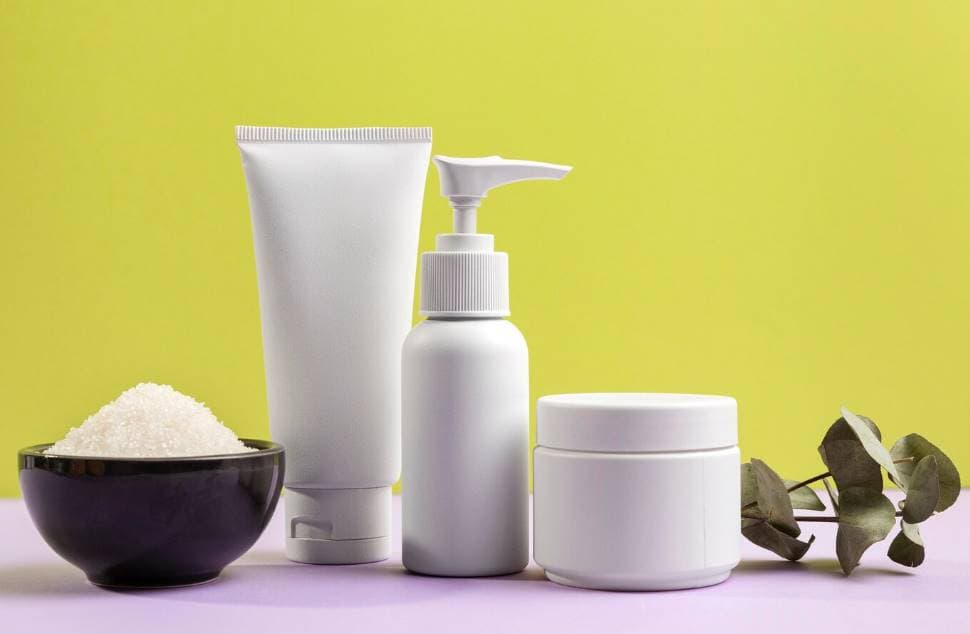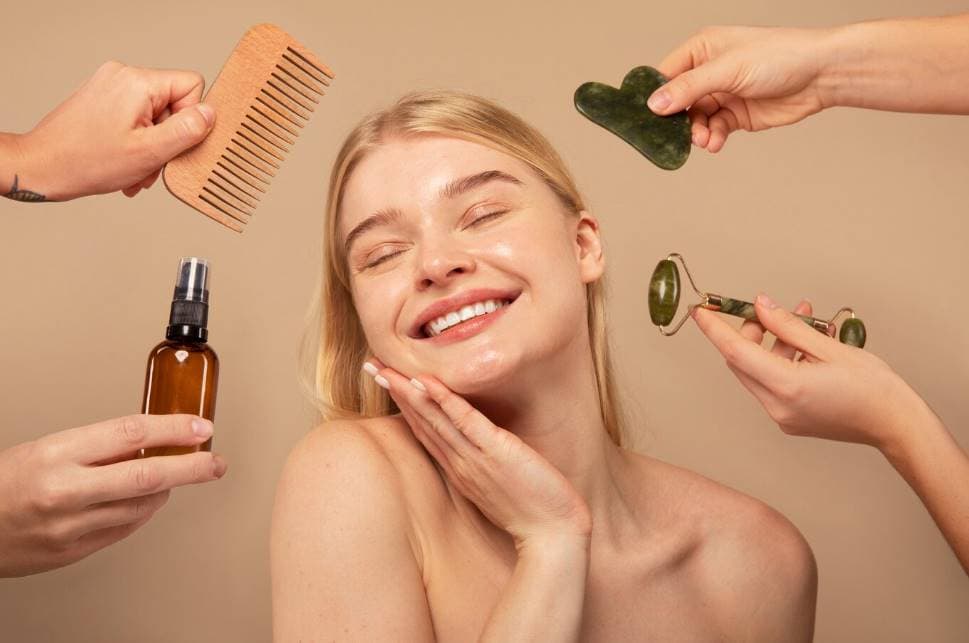Beginning a skincare programme is the first step on the road to healthier, more beautiful skin, so it's important to lay a solid groundwork. Whether your skin is oily, dry, mix, sensitive, or normal, you need know this before beginning any skincare routine. Using this information as a reference, you can choose products that will best meet the demands of your skin type. Cleaning is the initial procedure.
Find a mild cleanser that works for your skin type to get rid of grime and pollution without stripping away your skin's natural oils. It is essential to cleanse your skin twice daily, in the morning and before bed, to clear your pores and get it ready for the rest of your skincare routine.
After washing, toning is the next most important step. A good toner may restore your skin's pH, tighten your pores, and wash away any lingering debris. To calm your skin, use an alcohol-free toner with calming camomile or rose water.
Use a serum after you tone. Concentrated active ingredients are what make serums so effective at treating skin issues like acne, fine lines, and discoloration. Serums containing hyaluronic acid deeply moisturise the skin, while vitamin C serums are great for lightening the complexion.
Every single skincare routine needs to include moisturising. Keep your skin well hydrated and balanced with a lightweight, non-comedogenic moisturiser, even if you have oily skin. Moisturisers with sun protection (SPF 30 or above) are ideal for use during the day to prevent sun damage.
Don't overlook the eyes as a final step. Get yourself a high-quality eye cream that can help with issues like dark circles and puffiness. Apply under-eye cream with a light patting motion with your ring finger, which applies the least pressure.
Establishing a skincare programme requires consistency and perseverance. Be patient and persistent; progress will come in due time. The health of your skin is directly related to your overall lifestyle, so don't forget to drink plenty of water, eat a balanced diet, get plenty of sleep, and deal with stress well.
To make sure you're on the right track to attaining your skincare objectives, a dermatologist can also provide personalised advice and address any specific problems you may have.
How does one establish a skincare regimen?
Crafting a successful skincare routine often involves a touch of trial and error. Starting with the basics, such as a cleanser, moisturiser, and sun protection, is advisable. These foundational steps play a pivotal role in eliminating surplus oil, dirt, makeup, and other impurities, alleviating skin irritation, and forestalling the early signs of ageing.
The choice of products largely hinges on one's skin type, be it oily, dry, combination, or sensitive. Depending on this skin categorisation, supplementary products like toners, serums, and targeted treatments can be introduced to address specific issues like dry patches, redness, acne, or fine lines.
Consistency is arguably the linchpin in any skincare regimen. Given that the skin undergoes a full renewal every 28 days, it necessitates this duration to truly adapt to any new product introduced.
It's not uncommon for individuals to experience a "purging" phase characterised by dryness or breakouts, especially when integrating robust treatments laden with active ingredients. If there's a suspicion of an allergic reaction, consulting a dermatologist is recommended. Nonetheless, such reactions are often par for the course, and with sustained usage spanning four to six weeks, the benefits will invariably come to the fore.
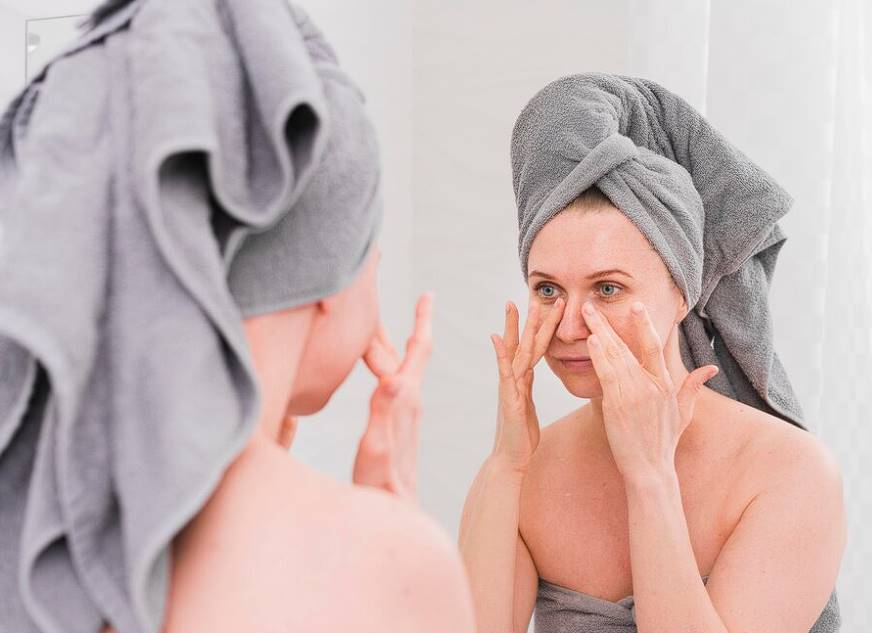
What Belongs in Your Skin Care Cabinet
Next, you need to learn the components of a skin care regimen that actually works. That is to say, what specific items are essential for maintaining clean and healthy skin?
Cleanser
When washing your face, use a cleanser designed for that purpose, not some random bar of soap or bottle of body wash. When washing your face, be careful not to scrub too harshly. Then, rinse with warm water, as hot water can strip the skin of its natural oils and leave it dry.
It may take some experimentation to find the ideal cleanser for your needs. One without alcohol or smell will do best for dry skin. If your skin is oily, you should seek for a product that doesn't add more oil, and you may also want to use a toner.
Toner
After the cleansing process, applying a toner can aid in calming, softening, and refining the skin's texture. Besides alleviating redness and dry patches, toners contribute to replenishing and reintroducing vital nutrients to the skin.
Moisturiser
Moisturisers, like cleansers, are something everyone should be using after every time they wash their faces. It's typical to go through a few different products before finding the one that works best for you; this is especially true of cleansers. Moisturisers stop your skin from becoming parched, making it soft and supple. When applied to slightly damp skin, they work best to lock in moisture.
Sunscreen
Even though some moisturisers have sun protection factors built in, it's still a good idea to use a separate sunscreen, especially if your moisturiser has an SPF of less than 30. You should know your lines by now. Even if it's cloudy or cold outside, you should still put on sunscreen every day.
Reapply sunscreen every two hours when outdoors. Wear sunscreen with broad-spectrum protection, meaning it blocks both UVA and UVB rays. UV exposure is the leading cause of wrinkles, uneven tone, loss of firmness, and ageing indications; if skin cancer and sun damage weren't enough to convince you, that is.
Exfoliation
This is a product likely not intended for daily use. Particularly during colder climates, even when one's skin feels parched, exfoliation should typically be limited to once or twice a week.
Exfoliation aids in shedding flaky skin and is optimally performed post-cleansing but prior to moisturising. Many experts tend to favour chemical exfoliants over abrasive scrubs to safeguard the skin's protective layer.
Nonetheless, the advantages of exfoliation, such as eliminating dead skin and clearing pores, are undeniable.
Serum
Serums, either utilised independently or alongside one's customary skincare items, encompass ingredients such as antioxidants or retinol. These compounds actively contribute to the holistic well-being of the skin in diverse manners.
When You Should Use What
To help you keep track of when you should be performing which skin care tasks, consider the following: Your evening regimen should focus on cleansing and restoration, while your morning routine should emphasise prevention and protection throughout the day.
Most people can get away with just one daily thorough face washing. In the morning, a quick rinse with warm water and some SPF moisturiser and sunscreen should do the trick, but after a long day in the sun, your skin will need additional TLC at night.
Consequently, you should remove your makeup and grime from your face with a cleanser before bed, and then follow up with an exfoliator, a toner, and possibly some serums. Moisturise last, no matter what else you do.
Sweat can clog pores and make acne worse, so you should always wash your face after working out or getting sweaty, no matter what time of day it is. Makeup should always be removed and plucking at the skin avoided before bed.
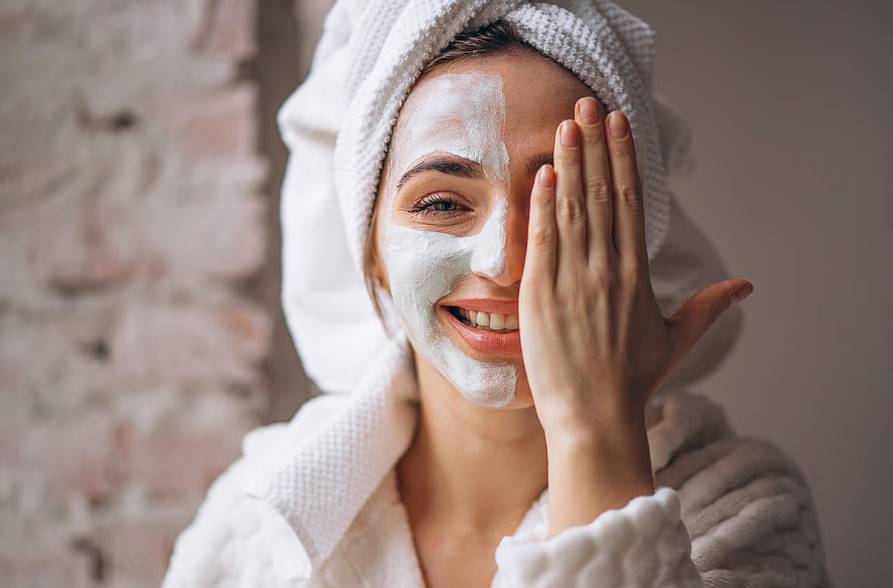
How to Build a Skincare Routine for Beginners
Navigating the world of skincare can be overwhelming. This simplified guide provides the essentials for kickstarting your skincare journey.
Essential Skincare Steps:
1. Keep It Simple:
Start with cleansing, moisturising, and sun protection. As your routine evolves, consider specific products tailored to your needs.
2. Identify Your Skin Type:
Determine if you have oily, dry, combination, or sensitive skin, and choose products accordingly.
3. Cleanser Selection:
Opt for a cleanser that suits your skin type to eliminate daily impurities and prep your skin.
4. Moisturise Right:
Regardless of skin type, ensure regular moisturisation to maintain skin elasticity.
5. Never Skip Sunscreen:
Daily sun protection is crucial to prevent potential skin damage and premature ageing.
Stay Consistent: To see results, stick to your routine for at least six weeks, aligning with your skin's natural renewal cycle.
Consider Add-ons: Based on specific needs, you can introduce toners, exfoliators, and acne treatments.
For tailored advice, consulting a dermatologist is always a good idea.
Conclusion
For healthier, more beautiful skin, you need to start a skincare practise. To pick the right items, you need to know what kind of skin you have—oily, dry, mix, sensitive, or normal.
The first step is to clean your face twice a day with a mild cleanser to get rid of dirt and smog. The next step is to tone your face with a rose or camomile water-based toner that doesn't contain alcohol.
Serums can help with face problems like acne, fine lines, and uneven colour. Moisturising is important, especially for oily skin, and there are light, non-comedogenic choices that can help. Another important step is eye cream, which gets rid of dark lines and puffiness.
A beauty routine needs to be followed consistently and with determination. It's important to deal with worry, drink a lot of water, eat a balanced diet, and get a lot of sleep. A dermatologist can give you personalised help and take care of any problems you may have.
Creating a good skincare routine usually takes some trial and error. Start with the basics, like a wash, moisturiser, and sunscreen. What products you use rely on the type of skin you have, and it's important to be consistent because skin renews itself every 28 days. If you think you might be having an allergic response, you should see a dermatologist.
Use a wash made for your skin type, avoid harsh scrubs, and rinse your face with warm water to keep your skin clean and healthy. Toners help calm the skin, make it smoother, and lighten it.
After washing your face, you need to use moisturiser to keep your skin soft and smooth. It's important to use sunscreen, especially if the SPF in your moisturiser is less than 30. Once or twice a week, you should exfoliate, which is not something you should do every day, to get rid of dead skin and open up your pores. Serums that have retinol or vitamins in them are good for your skin.
When planning your skincare routine, do the things that clean and heal your face in the evening and the things that protect and prevent in the morning. Cleanse your face with a wash before bed after a long day in the sun to get rid of dirt and makeup. Then, use an exfoliator, toner, and maybe some serums. No matter what else you do, moisturise last.
If you're new to skincare, keep it easy by figuring out your skin type, picking the right cleanser, moisturising correctly, using sunscreen every day, sticking to the routine for at least six weeks, and thinking about adding toners, exfoliators, and acne treatments. It is always best to get personalised information from a dermatologist.
Content Summary
- Embarking on a skincare journey is essential for radiant skin.
- Start with foundational steps: cleanse, moisturise, and shield from the sun.
- Not all skincare routines need to be elaborate to be effective.
- Understand your skin type: oily, dry, combination, or sensitive.
- The right cleanser removes daily pollutants without harming natural oils.
- Cleanse twice daily for the most effective results.
- Toners play a pivotal role in refining the skin post-cleansing.
- Seek toners with calming ingredients like camomile or rose water.
- Serums, packed with active ingredients, target specific skin issues.
- Consider serums with hyaluronic acid for deep moisturisation.
- Vitamin C serums can enhance skin brightness.
- Regardless of skin type, moisturising is non-negotiable.
- Opt for moisturisers with inbuilt sun protection for daytime use.
- Eye creams can address specific issues like dark circles and puffiness.
- Consistency is the cornerstone of an effective skincare routine.
- Adjustments in skincare routines reflect one's overall lifestyle.
- Hydration, balanced diets, and stress management complement skincare.
- Personalised advice from a dermatologist can optimise routines.
- A minimalist approach to skincare often prevents product overload.
- Save money and reduce waste by being selective with products.
- Toning can drastically improve the skin's pH balance.
- Regular moisturising maintains the skin's plumpness and balance.
- Sunscreen application should be an everyday habit.
- UV protection is essential, even on overcast days.
- Broad-spectrum sunscreens offer the best protection against UV rays.
- Introduce exfoliation to your routine sparingly, perhaps once a week.
- Chemical exfoliants often trump physical scrubs for skin health.
- Morning routines should emphasise protection for the day.
- Evening routines should focus on cleansing and rejuvenation.
- After rigorous activities, always cleanse to prevent clogged pores.
- Always ensure makeup removal before retiring for the night.
- Avoid excessive face touching or skin picking.
- Crafting a skincare routine demands patience and perseverance.
- Adapt your routine based on specific needs and seasons.
- A touch of serum can elevate your skincare regimen.
- Skincare is as much about prevention as it is about treatment.
- A well-structured skincare routine enhances skin's natural beauty.
- Embrace products with proven ingredients for assured results.
- Simplicity in skincare often leads to consistency.
- Personalise your regimen for your unique skin needs.
- Establishing a skincare routine is a commitment to skin health.
- Active ingredients in serums address skin woes at a molecular level.
- Protecting skin from UV rays can slow signs of ageing.
- Each skincare step prepares the skin for the subsequent product.
- Regular cleansing ensures optimal absorption of other skincare products.
- Prioritise skincare products based on individual concerns.
- Skin requires time to adjust to new products; patience is key.
- Recognise the importance of sun protection in any routine.
- Embrace a skincare routine that aligns with your lifestyle.
- Seek expert guidance when in doubt about skincare choices.
Frequently Asked Questions
Determining your skin type involves observing how your skin feels throughout the day. If it feels tight and dry, you likely have dry skin. If it becomes oily, especially in the T-zone (forehead, nose, and chin), you might have oily skin. Combination skin has characteristics of both, while normal skin feels balanced. Once you identify your skin type, you can choose products tailored to your specific needs.
A basic skincare routine includes cleansing, toning, moisturizing, and sun protection. Start by cleansing your face to remove impurities, follow with a toner to balance the skin's pH, apply a moisturizer to keep your skin hydrated, and use sunscreen during the day to protect your skin from UV rays.
Effective skincare doesn't necessarily require expensive products. Look for products with simple, high-quality ingredients that match your skin type. Ingredients like cleansers, moisturizers, and sunscreen are essential and come in various price ranges. It's more important to be consistent with your routine than to invest in costly products.
Once you establish a basic routine and your skin becomes accustomed to it, you can gradually introduce additional products like serums, exfoliants, or masks. Start with one new product at a time and observe how your skin reacts. Serums can address specific concerns like pigmentation or fine lines, while exfoliants help remove dead skin cells, promoting a brighter complexion.
The time it takes to see noticeable changes in your skin can vary depending on factors such as your skin type, concerns, and the products you use. Generally, you might notice subtle improvements, like improved hydration or a more radiant complexion, within a few weeks. However, significant changes, such as reduced acne or diminished wrinkles, may take several weeks to months of consistent use. Patience and consistency are key when starting a skincare routine.
